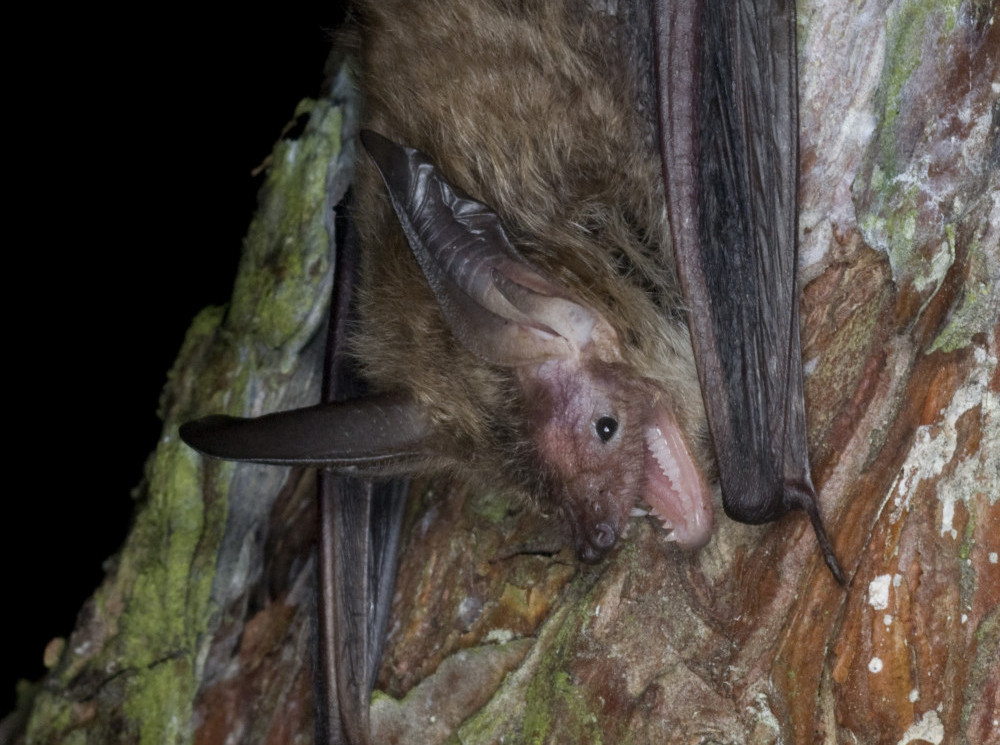Bechstein’s bats

Bechstein's is one of the rarest British bats as their preferred woodland homes are being destroyed or intensively managed. The challenges of studying an elusive night flying animal means much remains to be learned about this wonderful species.
Funding for this project has now finished
The problem
England population 1,500. In 2005, just six breeding populations were known.
Although we have a useful method to survey for Bechstein’s bat, it involves attracting and trapping individuals by means of an acoustic lure. Conventional monitoring with a bat detector is difficult because it is hard to distinguish Bechstein’s bats from other closely related species.
As such we have no easy or reliable way to determine population size or whether their numbers are increasing or decreasing in an area. This in turns makes it hard to protect the species, especially when it comes to developments that might impact on their forest homes.
The solution
This project will see if we can use molecular tools to monitor population size, how well populations are connected to each other and whether any inbreeding is occurring.
Our team will collect bat droppings and from those be able to work out the species’ DNA. That means that any future bat droppings collected at different roosts can be identified to species and, hopefully, individuals. If it works we can then tell how many animals are using each roost without having to catch them.
The project will also look at whether we can tell – from the length of part of their DNA – how old a bat is. If this is possible then we wouldn’t need to carry out long-term ringing studies. We could find out the same information from simple DNA analyses.
This is a very exciting and potentially useful project – please help us carry it out by making a donation now.
Thank you to all our donors who helped us fund this work. You can help us support more projects like this with a donation today:
